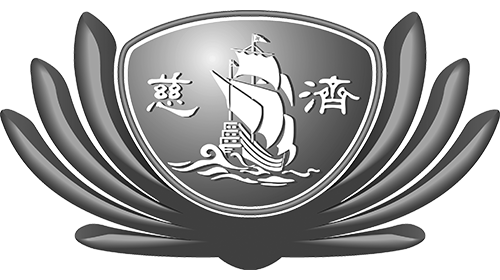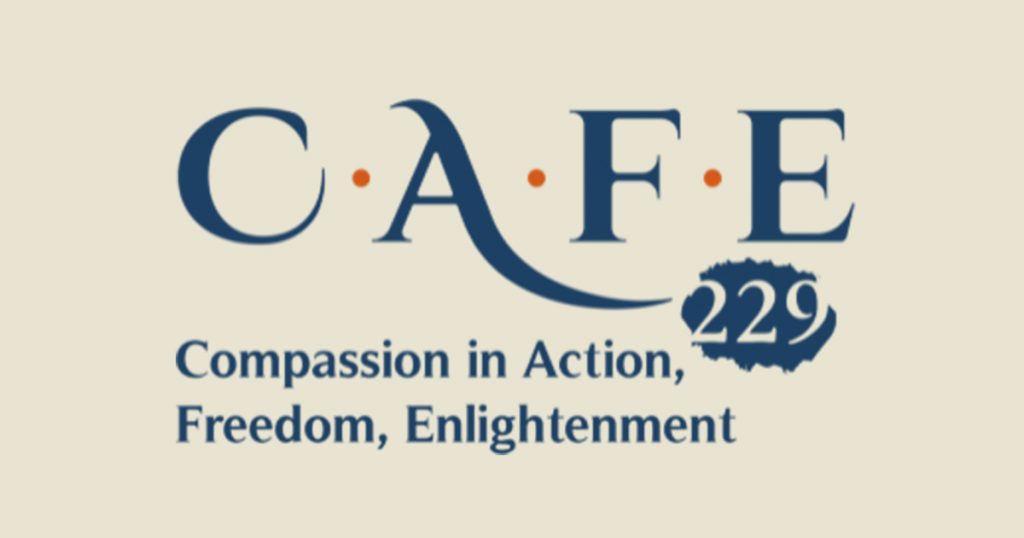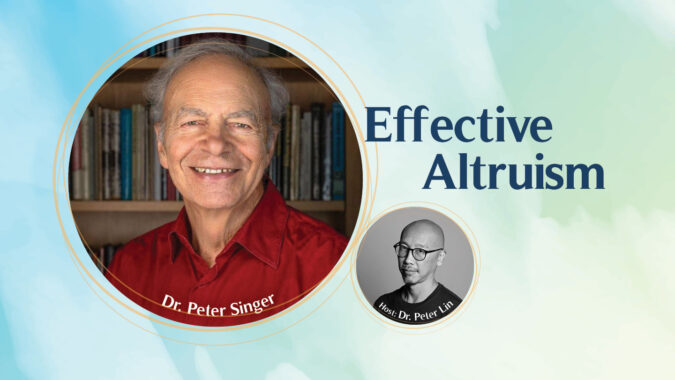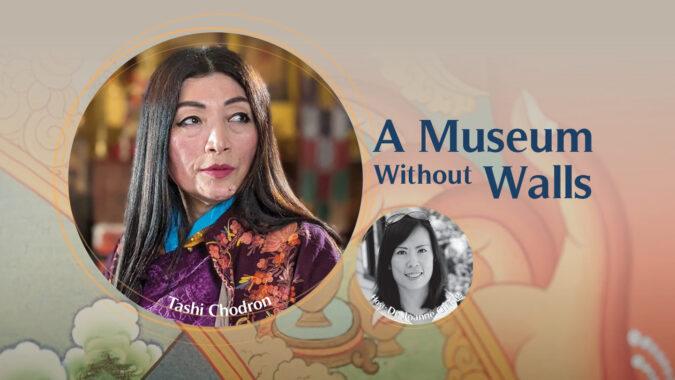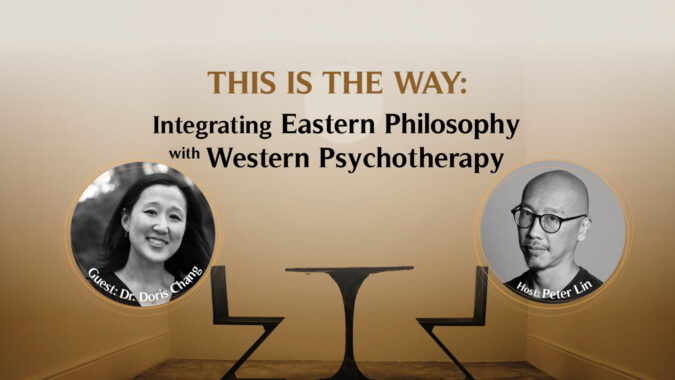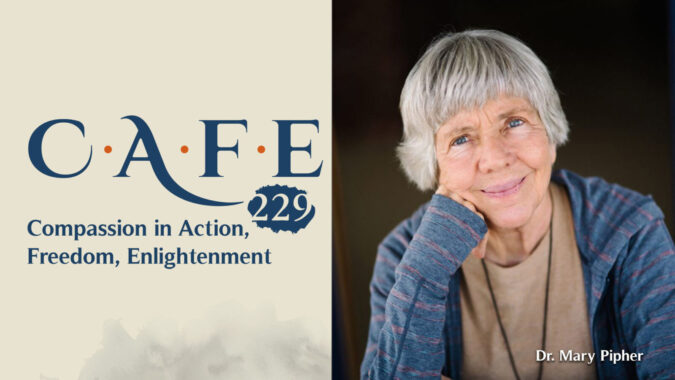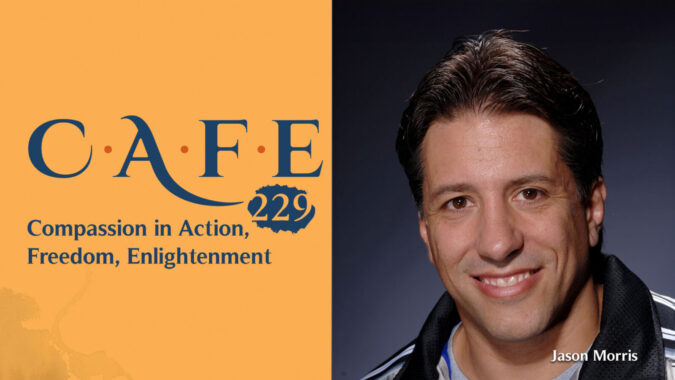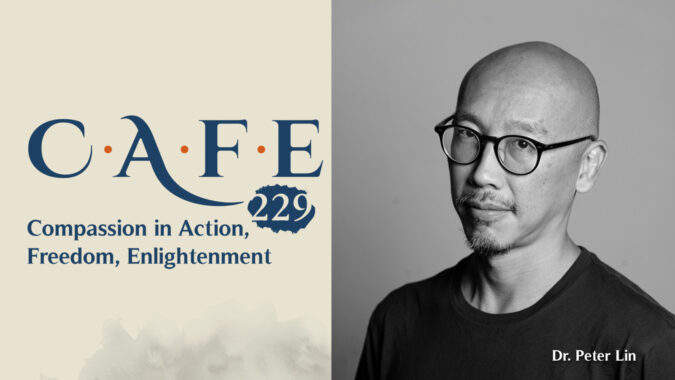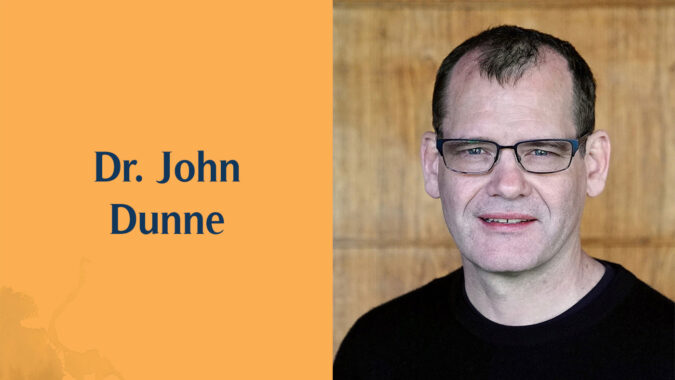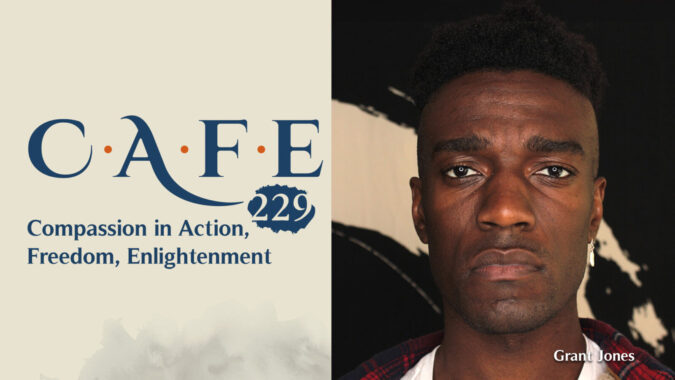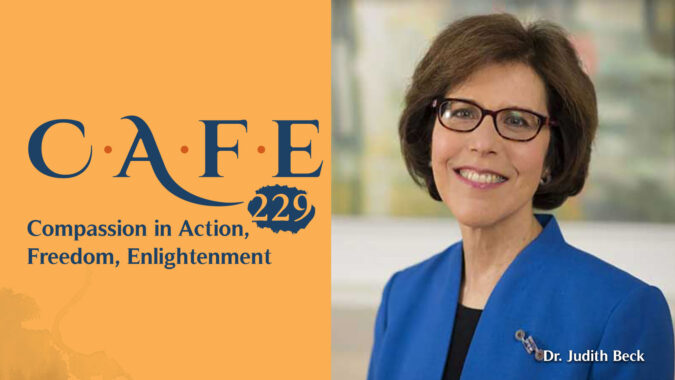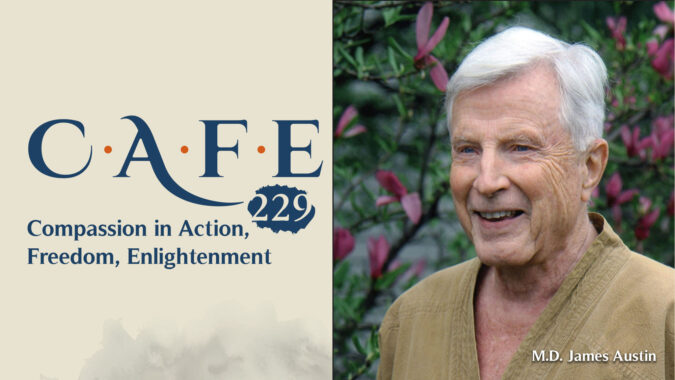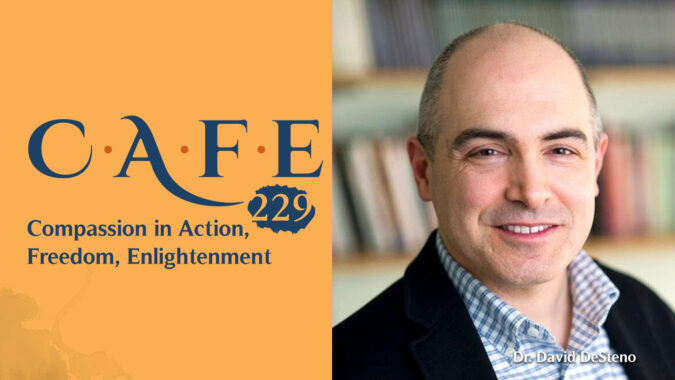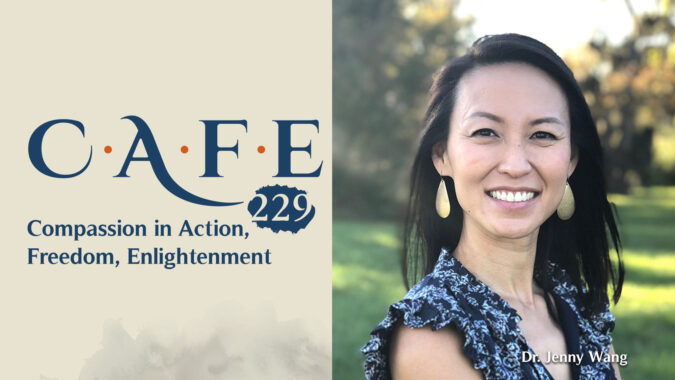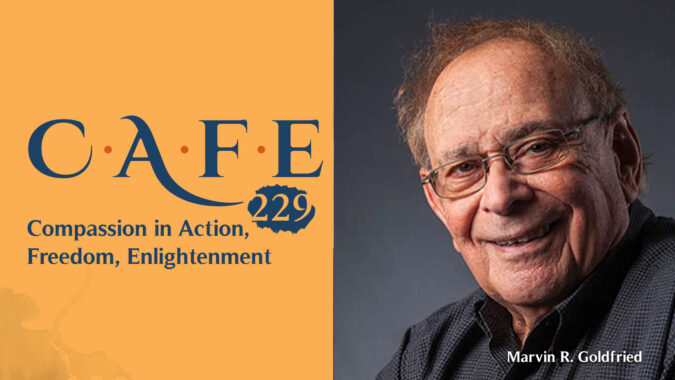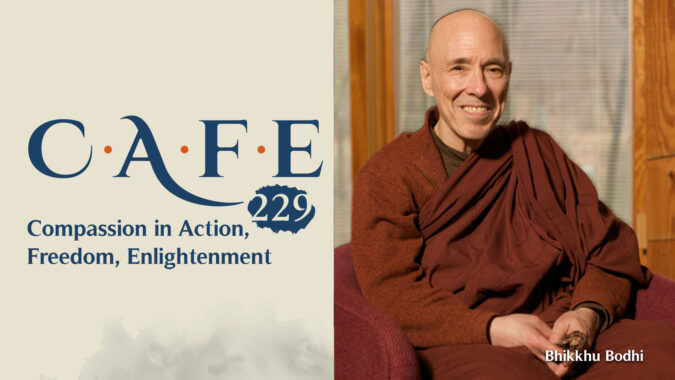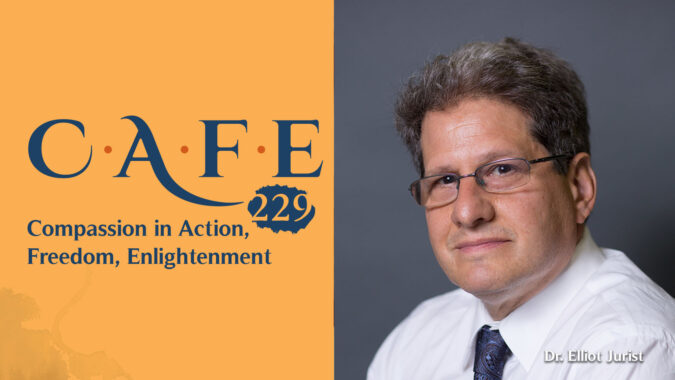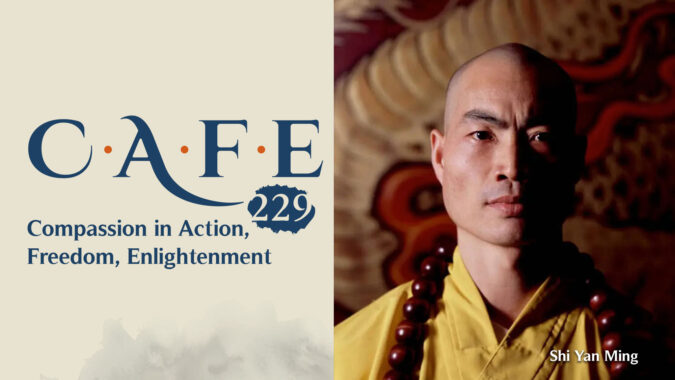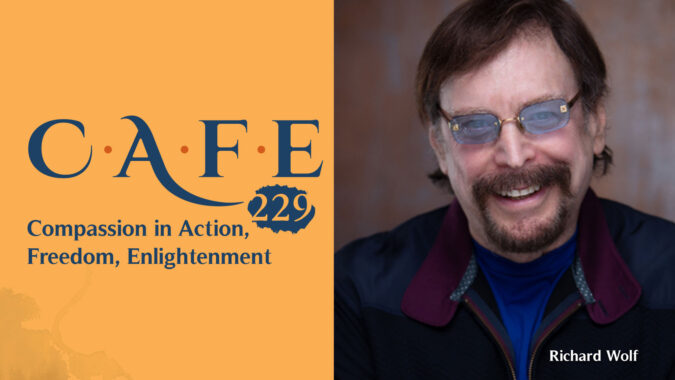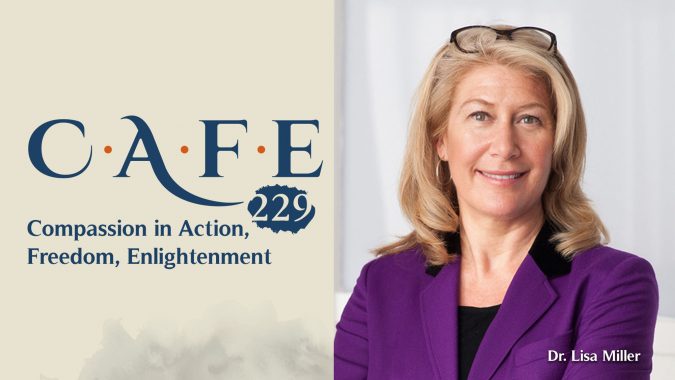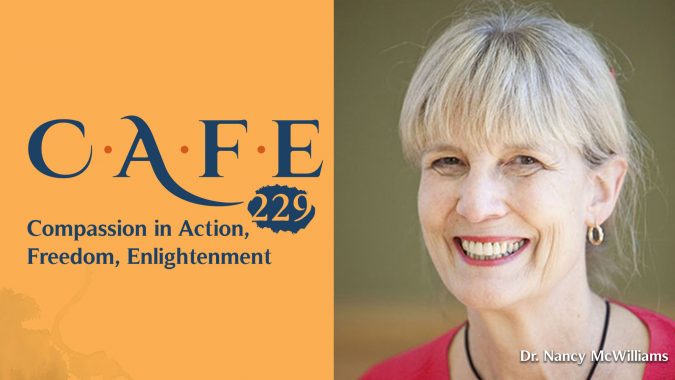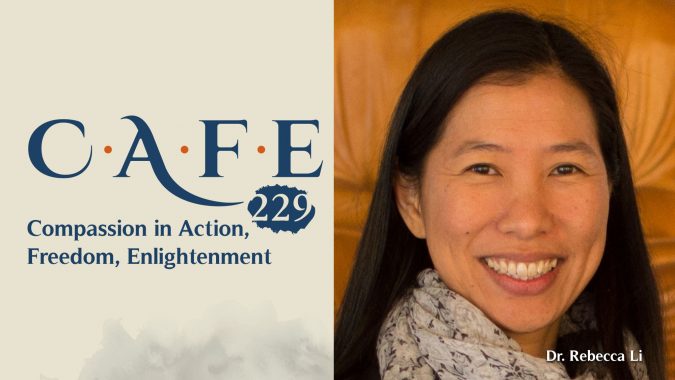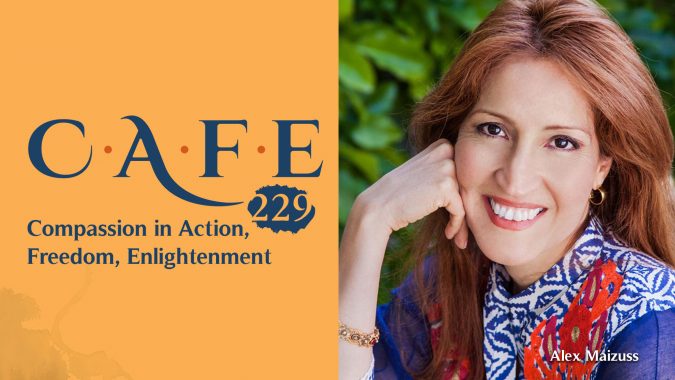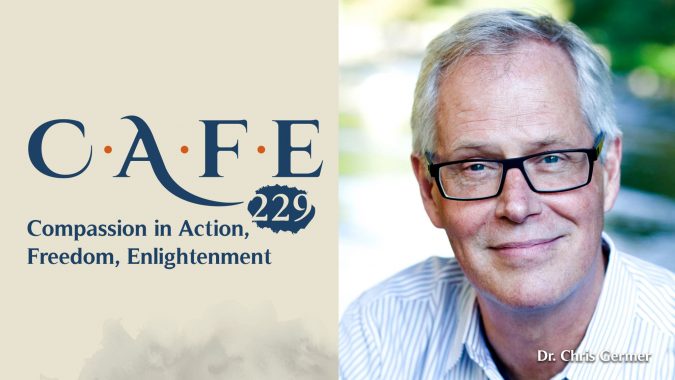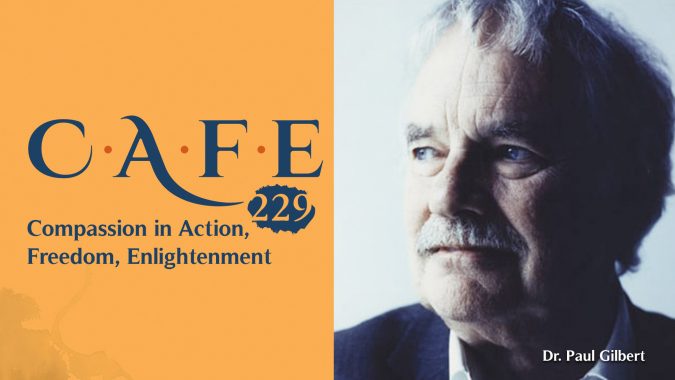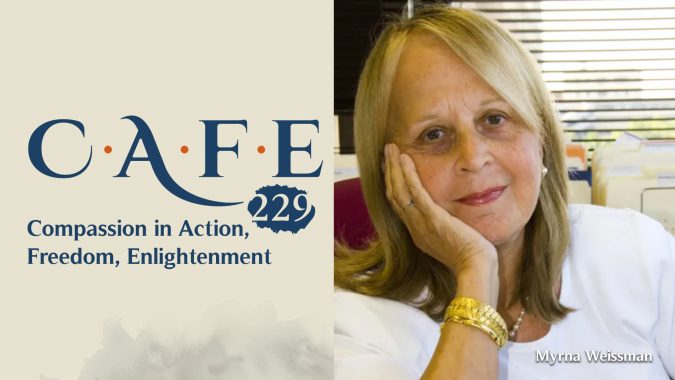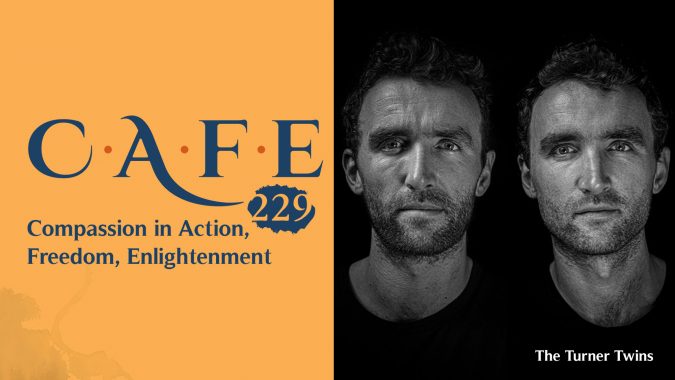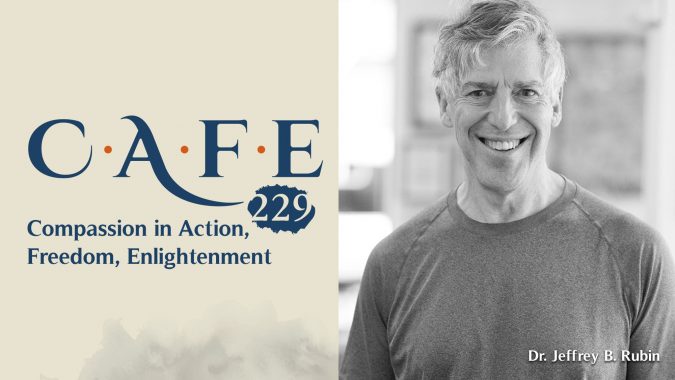In November, C.A.F.E.229 offered a stage for the virtual world premiere of Karuna, a Tzu Chi USA produced documentary celebrating compassion in action in the arena of international aid. The film took us on a vivid journey from the foothills of the Himalaya in Nepal to Bodh Gaya in India – where the Buddha attained enlightenment – and traced the activities of the non-profit Karuna-Shechen.
As several women shared their stories of lives transformed through the organization’s assistance, we discovered how compassionate aid must intertwine with wisdom. In the view of Karuna-Shechen’s founder, Buddhist monk Matthieu Ricard, who leads the narrative thread in the film, this entails supporting women’s empowerment and advocating voluntary simplicity.
Buddhist Master Shechen Rabjam Rinpoche, the co-founder of Karuna-Shechen, also appeared in the film and began by stressing the importance of compassion:
In the Buddhist tradition, we always talk about caring for others, helping others. We cannot do any prayer without thinking of other sentient beings. Then we can also put [that] in action – compassion in action.
Rinpoche then highlighted, more generally, the importance of getting rid of our negative emotions – which are the principal cause of suffering – cultivating equanimity while dissolving our self-centered tendencies.
Following the screening of the film, Matthieu Ricard, who is also an international best-selling author and prominent speaker worldwide, joined in from France and touched on those themes as well, pointing out the urgency of our adopting a more compassionate and altruistic attitude, given the challenges facing the world today:
Compassion is not just a good feeling. It’s not just to be nice. It’s not just a naïve, utopian ideal that doesn’t work in the real world. It is the most pragmatic answer to the challenges of our time. Selfishness has no chance to solve the problem of our times. We will never work for a more compassionate economy if we just promote or maximize our personal preference and immediate interest, which is the definition of the homo economicus. We need to step out of this voice of calculus and reason to bring the voice of care in the field of economy in the short term. In the midterm, compassion, kindness, dictate us to remedy poverty in the midst of plenty, to address all kinds of suffering, whatever shape they take, wherever they are, whatever their causes might be, and to try our very best to do all we can to remedy the cause of suffering.
Ricard also spoke about our basic need to flourish in life and how good quality human relationships play a part and increase our sense of happiness. In this regard, kindness, altruism, and the transformation of negative qualities are also fundamental:
We can’t have good human relationships with being nasty, grumpy, short-tempered, jealous, proud, arrogant, craving, angry. ‘No!’ We need to bring at the surface the best of our self, the best of human potential. Bring to the surface the Buddha Nature and let it fully bloom and express for the twofold accomplishment of others and our self.
He then pointed out how “almost unknowingly, we have completely damaged our planet and the fate of future generations. So now, this is a new challenge. Therefore, consideration for future generations has become one of the key points of compassion and altruism.” Moreover, such a state of mind is equally beneficial on the individual level, right now:
If you think ‘me, me, me’ all day long. ‘What happens to me. What’s going to happen to me.’ Hope and fear: It’s such a limited world. Then you feel miserable, and you make everyone’s life miserable around you. If you’re full of benevolence and compassion, you don’t feel so vulnerable. This is the most gratifying state of mind, and people will perceive it in positive ways because you’re kind to them, so they’ll love that. So, it’s good from all aspects, to cultivate altruistic love and compassion. There’s no unwanted side effects.
In conclusion, Ricard urged us to “be brave and claim that altruism, compassion, and cooperation are what we need most.” While he proposed that society should teach these values in secular ways, in schools, at the same time, as individuals, we also share responsibility for adopting this compassionate stance ourselves:
Let’s dare to implement it in our own life and slowly within our family, and within our village, and with it, society. And there may be a time where this is the new sort of paradigm shift. This is where the evolution of cultures will lead us, and we can be a much more compassionate world.
Quoting Martin Luther King, who said “We came in different vessels; now we are all in the same boat,” Ricard invited us to work together towards a better world.
